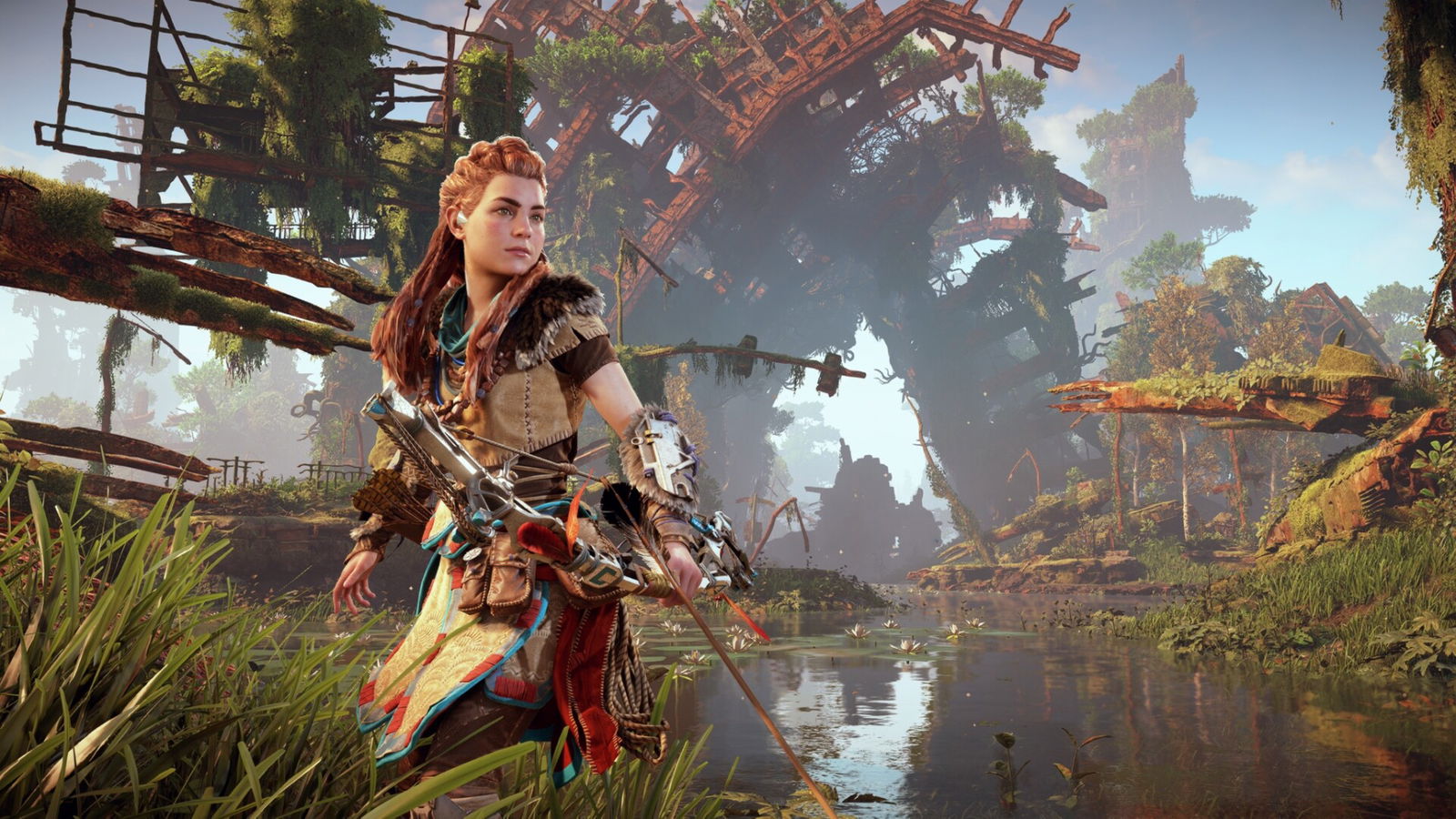Video games are a very common form of pop culture, where not only gaming but also gaming is done in a world that is totally interactive. By the time classic video game titles were released, many of them felt dated due to the pictorial leaps and bounds in graphics and technology that have come since. Although these games are classic games, they are very applicable to application modernization and can bring great graphics, gameplay, or accessibility to new players.
What is Application Modernization?
Application modernization is the act of bringing an application up to speed with present technologies. This enables the application to utilize modern coding languages, development frameworks, cloud infrastructure, and other such modern innovations.
Application modernization for video game development helps the developers modernize the core gameplay and story of a classic title without having to abandon the core concept. Older games can be given a much-needed modernity, with modernization being able to make older games more appealing and more accessible to modern audiences. In fact, almost all software-related solutions need to be modernized sooner or later. Read more about this here.
The Rise of Video Game Remasters
The term gaming remasters refers to the process of remaking and rede outlawing classic video games on modern systems. In the past few years, remastered games have been flooding the market on consoles, PCs and even mobile devices.
FromSoftware’s Demon’s Souls, which was released on PlayStation 3 in 2009, was remade in full by Bluepoint Games for PlayStation 5 in 2020. The dark fantasy world was recreated vividly using current-gen graphics, sound, animations and rendering for this top-to-bottom reconstruction. On the other hand, the wonderfully difficult gameplay improved while keeping the level layouts the same.
Like the original Star Wars: Knights of the Old Republic from 2003, the game was remastered in 2021 for PC and consoles. Application modernization was handled by Aspyr Media, which brought 4K resolution, HDR lighting, retextured environments and achievements. The BioWare RPG finally saw new life renewed.
With gaming remasters, the publishers get nostalgic monetization. Meanwhile, updated classics are also responsible for introducing venerable franchises to a new generation. However, quality remasters are very time-consuming, especially when rebuilding aged games instead of simply sprucing up resolutions.
Why Modernize Classic Video Games?
Game developers decide to remaster classics for several key reasons:
- Appeal to Nostalgic Fans. Long-time gamers yearn to replay favourites on modern devices. Adding contemporary visuals and cinematics while preserving original gameplay and narratives satisfy this nostalgic demand.
- Attract New Players. Classics contain compelling themes, stories, characters, worlds, and ideas at their core. Upgrading aging graphics, interfaces, and tech to match modern standards makes these experiences accessible to wider audiences.
- Establish Franchises. We can remaster the inaugural franchise title to remind gamers of the series’ roots and get gamers excited before launching sequels, remake and even, in the process, reboot a franchise title. The remakes of Resident Evil 2 and Final Fantasy 7 opened their respective storied franchise’s doors to a wider audience.
- Leverage Existing Assets. Developing remasters costs significantly less than crafting full-fledged new games. Developers can focus resources on enhancing gameplay and presentation rather than creating extensive new assets and engines.
- Fill Portfolio Gaps. New platforms launched by game companies must show technical capabilities and lineup. Filling gaps in the release schedule between original projects can be done through remastering acclaimed classics.

The Expanding Industry of Video Game Remasters
Developers keep even resurrecting classics with new remastering trends and the help of modern gaming engines and tools. Scores of iconic games have received modern upgrades, including:
- Dead Space
- Resident Evil 4
- The Last of Us
- Crysis
- The Elder Scrolls V: Skyrim
- The Legend of Zelda: Skyward Sword
- NieR Replicant
- Destroy All Humans!
- SpongeBob SquarePants: The Cosmic Shake
- Teenage Mutant Ninja Turtles: The Cowabunga Collection
- Persona 3 Portable and Persona 4 Golden
- Horizon Zero Dawn
Established AAA studios like Activision Blizzard, Rockstar Games, and Square Enix recognize the demand for enhanced editions of catalogue favourites. However, smaller developers are also seizing opportunities to refresh their retro titles with updated engines and programming interfaces.
The Challenges of Game Remastering
While tantalizing, properly modernizing aging video games poses multiple complex challenges, including:
1. Preserving the Spirit of Originals
When it comes to creating gameplay and staging, the developers must be very careful and keep the heart and soul of each game. Fan expectations can be betrayed if the core vision, themes, pacing, difficulty, and canon are too much diverted into new directions.
2. Upgrading Aged Tech Debt
Boosting resolutions and textures in older games that are based on legacy hardware is not enough, especially. Its fixing will require rebuilding the entire rendering pipeline, physics, animations, cameras, controls, and audio.
3. Managing Fan Expectations
Diehard fans are looking forward to remastering some classics, but it outrages them whenever the upgrades fall short of imagination and nostalgia. Now, it is the job of the developers to try and balance between the desire to make it better and not introducing any distortions to the canon.
4. Acquiring Rights
With defunct publishers and complex contracts, rights management presents legal challenges. All stakeholders must negotiate agreements for refreshing intellectual property, branding, stories, and game assets.
5. Repurposing Physical Assets
Locating, assessing, and converting usable original game code, data, art, sounds, and physical reference materials becomes problematic for decades-old projects. Assets may be damaged, deprecated, scattered across archives, or retained only in incomplete digital formats.
Game Engines Powering Remasters
Fortunately, several modern game engines and tools empower developers to enhance classic titles cost-effectively by handling grunt work.
Unreal Engine
Epic’s ubiquitous Unreal Engine suite underpins upcoming remasters like System Shock, Splatterhouse, Destroy All Humans! 2, and Blade Runner. It has a Blueprints visual scripting that helps developers develop game logic faster. Nanite’s geometry and Lumen’s lighting generate high-quality and dynamic spaces.
Unity
The versatile Unity engine helps smaller teams refresh retro catalogue titles thanks to its modular C# programming and extensive asset store. Unity remasters include Oddworld: Soulstorm, the Homeworld series, and multiple LucasArts adventure games.
Proprietary Engines
Graphics, animation, physics, and artificial intelligence engines that prop up the franchises of Call of Duty, Crash Bandicoot, and Assassin’s Creed, as well as others, are all built while established studios such as Activision and Ubisoft hold onto their proprietary engines. These internal tools help with the efficient remastering of series classics to modern incarnations.
The Allure of Nostalgia
Refreshable classic experiences give game developers power over powerful emotions. Both profitability and propagation of timeless gameplay innovation and storytelling for new generations come from not only remasters but the remasters themselves.
To revitalize retro video games, one needs to walk the line of honouring the original vision and association while adding accessibility to the fan service. Game application modernization gives way to frees the classic titles from their limitations by ancient technology while ensuring gamers love this nostalgic aura.
Remasters put beloved gaming formulas, characters, worlds and adventures in the spotlight in a whole new light once more, not through a simple cosmetic touch-up, but via sturdy software architecture refactoring to actually make them appear fresh and new to both time-worn veteran fans and curious newcomers. Application modernization celebrates gaming’s past by playing it forward and fuels players’ passion for even the most antiquated masterpieces.



